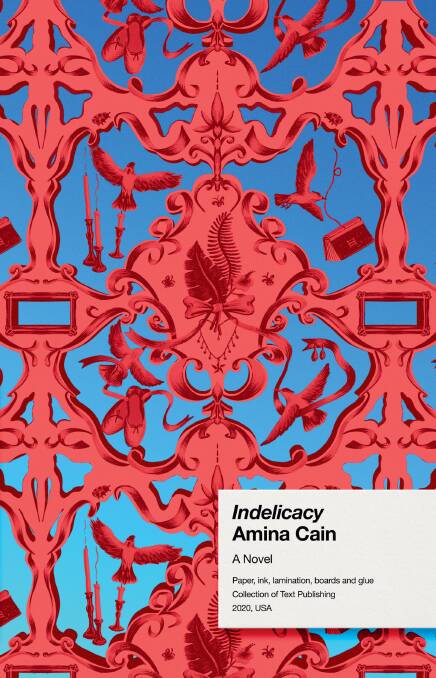Written before any hints of a pandemic, Indelicacy includes a particularly vivid description of the isolation and introspection of lockdown.
Subscribe now for unlimited access.
or signup to continue reading
Amina Cain's heroine finds she has "too much of my own self. I am stalking my own soul".
The excerpt typifies Cain's intense, condensed writing. She is the author of two story collections, and her work has been published widely.
Her short novel is narrated by a woman do whose name is used only rarely.
The action occurs in an anonymous city, although its restaurants serve borscht and dumplings, while its gallery boasts a few Caravaggios.
Out in the desert lies a date farm; jellyfish swim, in the ocean nearby.

On the surface, the story is a rags-to-riches tale, in which a poverty-stricken cleaner at an art museum marries a rich man, who gives her the leisure and means to write.
Beneath and beyond that narrative, Cain has constructed a morality tale, a fable, and an account of how badly someone might want and need to write - then to know if what she has written is any good.
The obsessive use of "I" (sometimes inflected ironically), the abbreviated sentences and concise scenes, all those props turn the book into a form of inspired literary mindfulness.
The narrative is spare, but also unsparing in its judgments of character.
A reader is invited not merely to accompany the narrator, but to feel and pine and desire along with her.
The focus throughout is less on the art of writing, more on the urgency and necessity of writing something.
Filling pages with script, Cain's heroine "felt I must be filling myself too".
When she appraises other arts, ballet or paintings, she does so seeking always to find a form and a frame to write about them.
Indelicacy might strike some readers as emotionally arid, with its cast exactingly scrutinised as though through a microscope.
The heroine describes herself as "unstable", but that seems to under-state the extent of her obsessions and anxieties.
She does not actually achieve much, with excerpts from her writing (inserted in italics) a bit jejune in their self-regard.
Her placid husband's motivation is never quite explained.
The most crisp, incisive commentary comes from a maid, who is provoked into telling the truth by a misguided grant of sexual favours.
The most famous first-person story starts with a chapter titled, "I am born".
Here Cain concentrates on a woman trying, artistically and intellectually, to be born.

